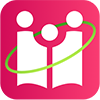“MCH Handbook as a family-based tool to promote the Miracle of First 1000 Days”
Leaders for a New Development Era from 31 countries and areas from all over the world, meeting at the 11th International Conference on the Maternal and Child Health Handbook in Bangkok from 12th to 14th of December 2018, have gathered at a critical and strategic moment in the initiative to recognize the MCH Handbook as a family-based tool to promote the Miracle of First 1000 Days of all children”.
“The First 1,000 Days” including the time from conception to age three is the crucial time for mothers and children. Proper nutrition, stimulation, and environmental factors influence a child’s ability to grow, learn, work, and succeed. In order to ensure healthy lives, and promote wellbeing for all at all ages by 2030, we are required to make harmonized efforts to achieve “leaving no one behind” under the agenda of Sustainable Development Goals (SDGs) adopted by the United Nations General Assembly in September 2015.
The MCH Handbook is a comprehensive tool, designed to be kept by the family that may contain integrated on and off-line health records and information on pregnancy, delivery and child health. More than 50 countries and areas over the world have developed and used it as a unique and essential measure to address the need to provide a continuum of care for maternal, neonatal, child and adolescent health in the manner of people-centered approach.
The conference has provided an opportunity, following the Tokyo Declaration adopted by the 10th International Conference on the MCH Handbook, held in Tokyo in November 2016, to reflect on what has been learned about development and implementation; to re-examine the values and effects of the use of the MCH handbook; and to identify the directions and strategies required to promote Universal Health Coverage in the 21st century.
Finally, all the participants of the 11th International Conference on the MCH Handbook hereby conclude and recommend that:
- The MCH Handbook is an essential and effective family-based tool that can promote “Continuum of Care” for all mothers and children, especially during the first important 1000 days of life.
- The MCH Handbook should particularly promote early child development for ensuring wellbeing throughout the life course.
- The MCH Handbook should be prioritized as a necessary component in health service delivery in maternity facilities and be a guidance for all families using for improving their health literacies on maternal and child care.
- The MCH Handbook is a global standard tool to improve maternal, neonatal, child and adolescent health to accelerate achieving the Sustainable Development Goals particularly the SDG goal 3.
- The MCH Handbook should be seen as one of the most important benefit packages that the government provides for all mothers and children through community health services, health facilities and responsible organizations.
- The sustainability of the MCH Handbook program demands country and stakeholder ownership with strong commitment from domestic sources, as well as multilateral and bilateral organizations and private sectors in terms of financial investment and technological support.
- The development of the MCH Handbook in the 21st century should open up various kinds of innovations in order to provide opportunities for more partnership, scaling-up utilization, and inclusivity of users.
The MCH Handbook Bangkok Declaration offers a vision and focus for the innovative, equitable and sustainable development of maternal, neonatal, child and adolescent health in the SDGs era. It reflects the firm commitment of participants in the conference to draw upon the widest possible range of resources to promote the MCH Handbook for our world and for future generations.
We, as a strong partnership with the common vision towards the development of MCH Handbook, have committed to ensure that MCH Handbook is a family-based tool to promote the Miracle of First 1000 Days.
Bangkok, Thailand
14th December 2018
